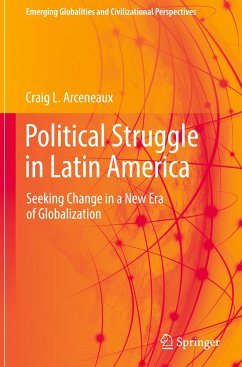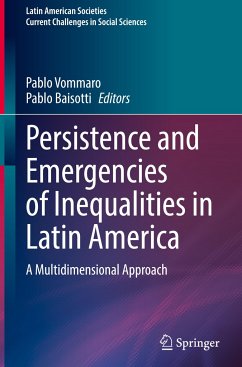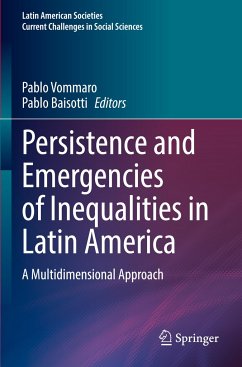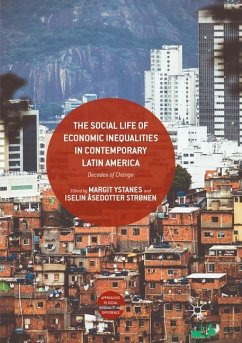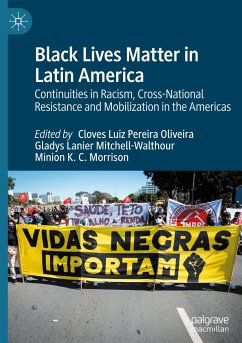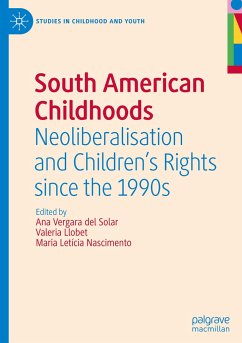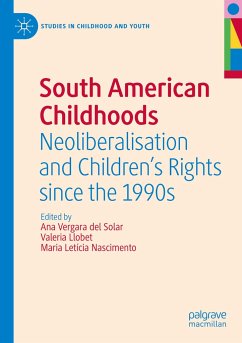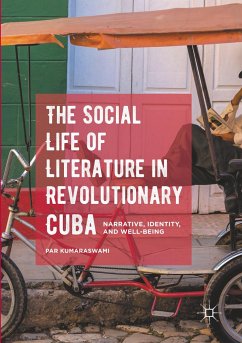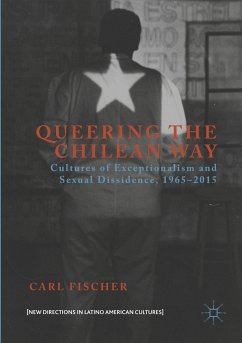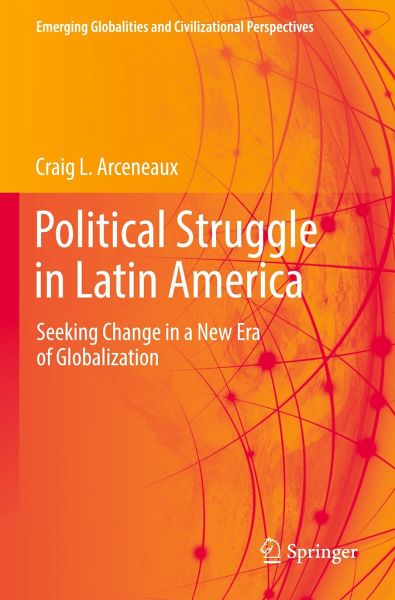
Political Struggle in Latin America
Seeking Change in a New Era of Globalization
Versandkostenfrei!
Versandfertig in 6-10 Tagen
76,99 €
inkl. MwSt.
Weitere Ausgaben:

PAYBACK Punkte
38 °P sammeln!
This book discusses in an accessible way how emerging globalizing processes are setting the stage for new forms of social and political struggle in Latin America, with increased involvement of multilateral and foreign actors, and impacts of global political populism and populist social media. These are opening up new strategies and opportunities for activists, and offer new arenas of contestation for international organizations. The book analyzes the struggles of select marginalized groups, specifically the urban poor, indigenous groups, women's and LGBTQ groups, and the vulnerable middle clas...
This book discusses in an accessible way how emerging globalizing processes are setting the stage for new forms of social and political struggle in Latin America, with increased involvement of multilateral and foreign actors, and impacts of global political populism and populist social media. These are opening up new strategies and opportunities for activists, and offer new arenas of contestation for international organizations. The book analyzes the struggles of select marginalized groups, specifically the urban poor, indigenous groups, women's and LGBTQ groups, and the vulnerable middle classes. Each case is examined in the context of a distinct struggle for citizenship, identity, inclusion, and or the rule of law. The study offers a broad historical analysis of the region through the context of these struggles. It tackles some of the most pressing issues surrounding the current politics of Latin America, including identity politics, cultural appropriation, social mobilization and protest, neoliberal reform, reproductive rights and sexual autonomy, corruption, the influence of religion and patriarchy, crime and social justice, inequality and poverty, the informal economy, and urban exclusion. In doing so, it details not only how these are not new struggles, but also how they have evolved over time. In the contemporary period, the book explores how the actors as well as character of their struggle are changing through a globalized interchange of ideas and processes. The book covers a wide geographical area in Latin America, with a particular focus on countries with Spanish or Portuguese colonial backgrounds, and is for researchers, students and laypersons interested in new globalizing forces affecting Latin American society and polity.





